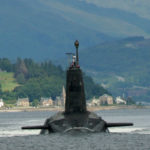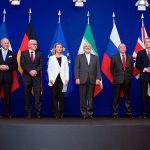By Liv Galbraith While the path to an independent Scotland faces significant roadblocks, the renewed possibility of Scottish independence brings up questions about Scotland, the United Kingdom, and their respective places in the world. One of these questions, unresolved from 2014, is as much a question of the philosophical as the practical: what is the future of […]
A quick guide to the JCPOA Dispute Resolution Mechanism
By Samuel Hickey, Research Analyst On January 14, 2020, the E3 (France, Germany and the United Kingdom) together triggered the dispute resolution mechanism (DRM) enshrined in the 2015 Joint Comprehensive Plan of Action (JCPOA), better known as the Iran nuclear deal. The E3 have been threatening this action for months and the E3 countries are […]
Op-ed: Abandoning Open Skies: Trump Would Be Squandering More of Our Security Inheritance
Senior Policy Director Alexandra Bell and FCNL’s Anthony Wier co-wrote an op-ed in Just Security about the importance of remaining in the Open Skies Treaty. Last December, 25 Americans, along with counterparts from Canada, Germany, France, Romania, and the United Kingdom, joined Ukrainians on an urgent mission to help them defend their nation. A few days […]
Trump’s Withdrawal From the Open Skies Treaty Jeopardizes US National Security
Senior Policy Director Alexandra Bell was quoted in The Nation about the Open Skies Treaty. Arms control expert Alexandra Bell, who worked on the Open Skies Treaty and served as the senior adviser in the Office of the Under Secretary of State for Arms Control and International Security, told me that it is not even […]
New Language in the 2019 report on “Adherence to and Compliance with Arms Control, Nonproliferation, and Disarmament Agreements and Commitments.”
This is a selection of major new content found in the 2019 Compliance Report versus the 2018 Compliance Report. This document is prepared by the U.S. Department of State annually as, “a report providing a detailed assessment of the adherence of the United States and other nations to obligations undertaken in all arms control, nonproliferation, […]


